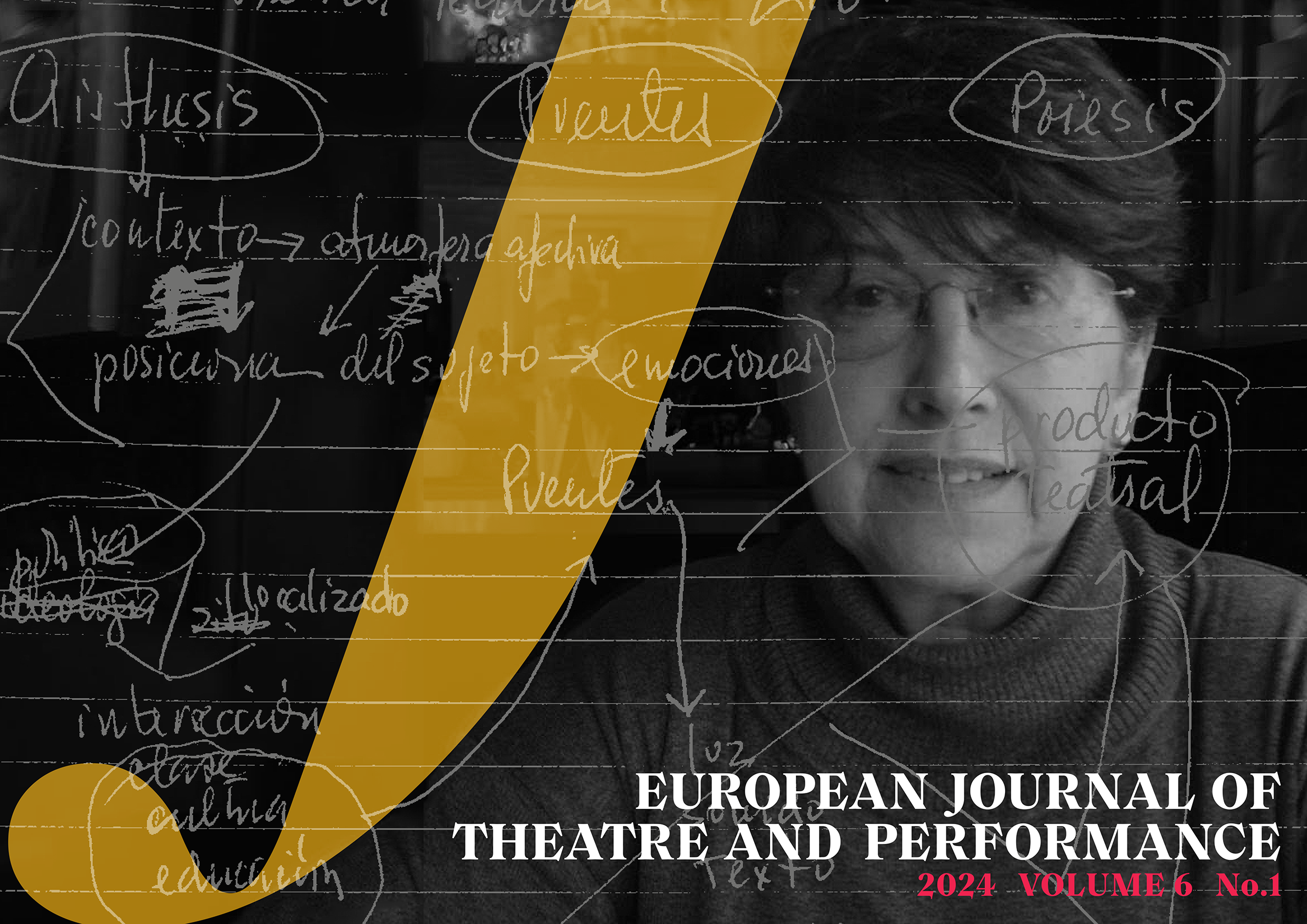Russian Theatre in Exile: On Diasporic Intimacy, Guilt of Compassion, and Anti-War Protest
DOI:
https://doi.org/10.21827/ejtp.7.42276Keywords:
political exile, Putin, Russia’s war in Ukraine, diasporic intimacy, anti-war protestAbstract
Russia’s invasion of Ukraine in February 2022 has turned into a new European tragedy, one the continent has not experienced on this scale since the military catastrophes of the twentieth century. In addition to the devastating losses on the war fronts, but also among the civilians in Ukraine, the war has sent thousands of people into exile, both from Ukraine and from Russia. This essay acknowledges the horrific damage this war has brought to Ukraine and Ukrainian culture and theatre. It also aims to begin mapping and describing artistic strategies of the anti-war protest as expressed by Russian-speaking theatre artists, who openly and firmly position themselves against Russia’s war in Ukraine and who stand in solidarity with the Ukrainian people. These artists fled Russia for different reasons: some left the country because of their open anti-war and partisan position, some due to the overbearing censorship, pressure from the authorities, as well as personal danger, which their work and public statements put them in. Today, many of them consider themselves political exiles. In this essay, I introduce a seven-step analytical model to examine how Russian theatre artists in exile document and condemn the impact of Putin’s regime on their country and its neighbours.
Published
Issue
Section
Copyright (c) 2024 Yana Meerzon

This work is licensed under a Creative Commons Attribution 4.0 International License.

